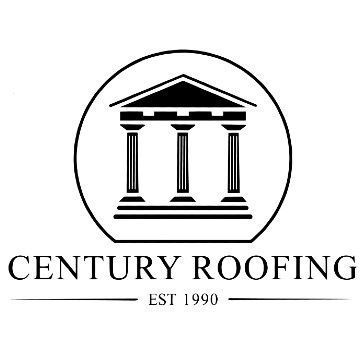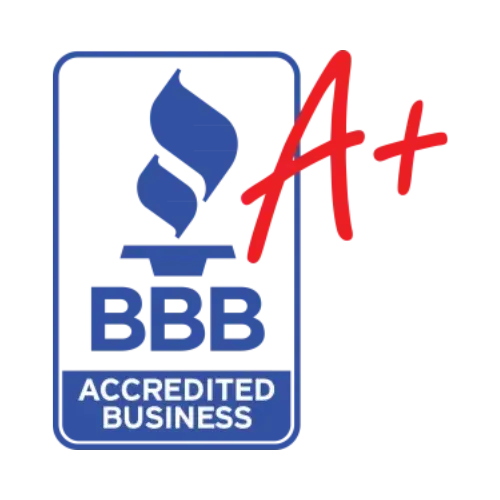STILL HAVE A QUESTION?
Our team is standing by to help answer any of your roofing related questions.
Request A Free Quote!
We will get back to you as soon as possible.
Please try again later.
GOOGLE RATING
4.5 Stars

Facebook Rating
4.8 Stars

Angi rating
4.8 Stars

Frequently Asked Questions
How long does a roof last?
Depends on the type of material, and to a great degree, the pitch of the roof itself. Standard asphalt laminated shingles such as GAF Timberline (or equivalent) will last appoximately 15-20 years in the Midwest. Concrete tile and standing seam metal roofs will last 50+ years with proper care and maintenance. Lower pitches will be to the lower side of longevity, while higher pitches to the higher side
How long does it take to install a roof?
Roof installation is typically a two or three-day process. However, re-roofing projects take less time than whole-roof replacement projects.
The length of time will also depend on the roof’s size and slope, the weather, and the project’s complexity. In addition, sometimes the damage is uncovered during the roof replacement process, which will need to be addressed and will add to the length of the project.
Century Roofing staff members will be in constant communication with you, so you understand how long your project will take.
My roof leaks. Do I need to replace it completely?
No! You don’t have to completely replace a leaking roof. Instead, Century Roofing crews are trained to find leaks and repair them so that you can prolong the life of your roof.
At times, it will be more cost-effective to complete a re-roof or roof replacement project. Most industry experts say that if the damage affects more than 30 percent of your roof, it’s better to replace than repair it. However, each situation is unique. Therefore, we will offer an honest assessment of the health of your roof so that you can make an informed decision that is best for your situation and budget.
Can you repair or replace any type of roof?
Yes, you can repair or replace any roof. However, it’s best to work with a roofing company that has experience in all types of roof systems and manufacturers.
It’s also worth noting that some roofing materials are heavier than others. For example, if you want to replace your asphalt shingle roof with clay tiles, an engineer must ensure that your home’s structure can handle the load.
What is the cost of a new roof?
The national average cost of a new roof is $10,000. However, there are a lot of factors that determine the actual cost of your project.
Factors that determine the cost of the roof:
square footage of the roof
the slope of the roof
the complexity of the project
type of roofing materials used
Should I replace my gutters before putting a new roof on?
No, all painting and guttering should be done after the roof is installed. We work closely with several locally owned guttering companies to secure our customers competitive pricing on all gutter replacement jobs that are coupled with a roof installation.
Do you offer financing options for roofing projects?
Yes, Century Roofing can offer financing options for your roofing project.However, we often find that customers are able to secure better lending arrangements with their lender.
Please talk with a member of our team about available financing options.
What roofing material is right for me?
Many homeowners select roofing materials for aesthetic reasons. Or some choose a particular roof system because it is required for their neighborhood.
A Century Roofing sales representative will help you understand the pros and cons of each type of roofing system and brand to find the best material to meet your roofing goals.
Can you work with my insurance company for a roof claim?
Yes, Century Roofing will meet with your insurance adjuster and fill out the paperwork required for a roof claim. If you recently experienced roof damage, contact a member of our team to schedule a free inspection prior to contacting your insurance company. We would hate for you to start filing a claim before we can confirm there is enough damage for your insurance to provide any compensation.
Does the roofing company you use really make any difference?
Absolutely! Most companies in the roofing industry make it less than 10 years. There is no substitute for experience. Most other roofing companies are based on hail restoration work and living storm to storm ("hail chasers"). If you have more invested in their company by giving them a deposit than they do, there's a problem.
A poorly ran contractor can end up not paying for materials on your home, and the supplier can put a lien on your house. It doesn't matter if you paid the contractor! Just because someone was a good roofer doesn't mean they are a good business person. You want a roofing company to be around as long as your warranty to assist if there are any issues down the line.
Check with the Secretary of State to see when they incorporated (under current name). Check with you county (and surrounding counties) to see if they've had a lot of lawsuits. Call the branch manager at your local roofing supply and ask off the record if they are a good contractor. Do your due dilligence and it will pay off!
Can you install a roof in the winter?
Yes, however most manufacturers recommend at least a 42 F degree temperature and above for the shingles to properly seal. So if a winter installation is done, there may be some shingles blow off until it seals (if the wind gets strong enough). Century Roofing will fix any of these issues at no charge. We need to work year round so we are used to it.
Is synthetic felt better than normal asphalt saturated felt?
The short answer is no! Asphalt saturated organic felt has been around for over 100 years. Today's asphalt felt uses a fiberglass matt instead of organic fiber, and even better than the old felt. Synthetic felt is a relatively new comer to the market and has shown problems with shrinkage and nail hole elongation. It is more expnsive than asphalt felt and proivdes no real advantage.
Is Ice & Water Shield necessary?
It is required by most municipalities' codes. However, if your home was built since say 2010, the insulation used is far superior to what was used in the 1980s or 90s. This better, thicker insulation allows less heat to escape into the attic and thereby limits the effects that cause ice dams. Ice & Water shield has a high coeffecient of thermal expansion and therefore contracts and expands along with the large temperature swings we have here in Kansas City. This can sometimes cause wrinkles to form in the membrane that can be seen through the shingles on the roof. While they don't usualy cause leaks, the appearance can be ugly. But since building codes now require it, we use it.
Ventilation - What type and how much?
Proper ventilation is essential on all roofing systems. It helps keep moisture from accumulating in the attic which oftentimes causes condensation issues in cold weather. This ventiliation "system" should have intake vents such as soffit vents, as well as exhaust vents. The 2018 residential code requires 1 sq foot of free ventilation for every 300 sq feet of attic space. Half should be intake and half exhaust.
Exhaust vents come in several types from standard louver type static vents to continuous ridge vent, or turbine vents. All types of vents have pros and cons. Ridge vents have come very popular over the past decade because they provide consistent ventilation over the entire span of the attic. They tend to be rather ugly, however, unless they are the "shingle over" type that have ridge shingles installed over the top of the ridge vent. These have a tendency to not hold the ridge very well. Some also have a mesh in them to keep snow out, but these mesh types tend to clog up over time with dirt and debris and lose much of their ventilation capacity. We generally recommend standard louver type as there are no moving parts to go bad and they never clog.
Is a "Premium" shingle really better than a "Standard" shingle?
It honestly depends on the mission, so to speak. If you are in your "forever home" then maybe so. Premium shingles usually have a slightly longer 100% replacement component to their warranty. Premium shingles also tend to be heavier and therefore are less apt to wind uplift (blow off) issues. This can be a big deal if you live in rural areas where the wind blows a lot and there's nothing to stop it.
Are Impact Resistant (IR) shingles worth the extra cost?
It depends on your insurance company and the state you live in. Some states and insurance companies will give a discount of up to 35% off your homeowners insurance if you install IR shingles. If that's your case then yes.
IR shingles will cost approximately $20-30 more per 100 sq ft over standard shingles. Divide that total by your annual savings on your insurance and you can see how long it takes to pay off. Keep in mind though, if you do get hit by hail, your roof may still suffer the same carnage that it would have without the IR shingles. The good news is that your insurance company will pay you for the IR shingles because that's what you had previously installed, and you'll still get a new roof!






